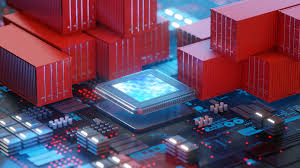Government News
To stop diversion to China, the US tightens regulations on cutting-edge computer processors.


By Kajal Sharma - 15 Jan 2025 08:48 PM
Reuters, Washington, January 15 In an effort to stop high-end chips from being diverted to China, the US tightened regulations on advanced computer semiconductors on Wednesday, according to the Commerce Department.According to the report, the new regulations place more stringent licensing requirements on chip manufacturers and packaging firms looking to export specific cutting-edge semiconductors. According to Commerce, they expand on previous actions meant to prevent China from obtaining specific semiconductors that are essential for military advantage.In an effort to slow down China's technological achievements, the US has tightened regulations for firms like Nvidia and imposed broad new laws restricting the sale of artificial intelligence (AI) processors. The worldwide AI chip market, particularly the Indian market, may be significantly impacted by these new regulations. The new regulations, which are expected to go into force in a year, place stringent restrictions on the processing capacity of AI chips that are marketed in the majority of nations. There are exceptions for allies who follow the security and human rights guidelines that the US has established.
The intent of these new regulations is to stop enemies, especially China and Russia, from using cutting-edge AI technology for surveillance or military objectives."Trade-offs are necessary for managing national security threats. In a White House blog post, US Commerce Secretary Gina Raimondo stated, "This rule guarantees our allies can access advanced technology while protecting our interests." In order to guarantee that AI development complies with US requirements, the laws expand upon earlier chip export controls. “This rule ensures that the infrastructure for frontier AI systems remains in America or allied jurisdictions, preventing offshoring similar to what occurred with chips and batteries,” said National Security Advisor Jake Sullivan in a formal statement.
























